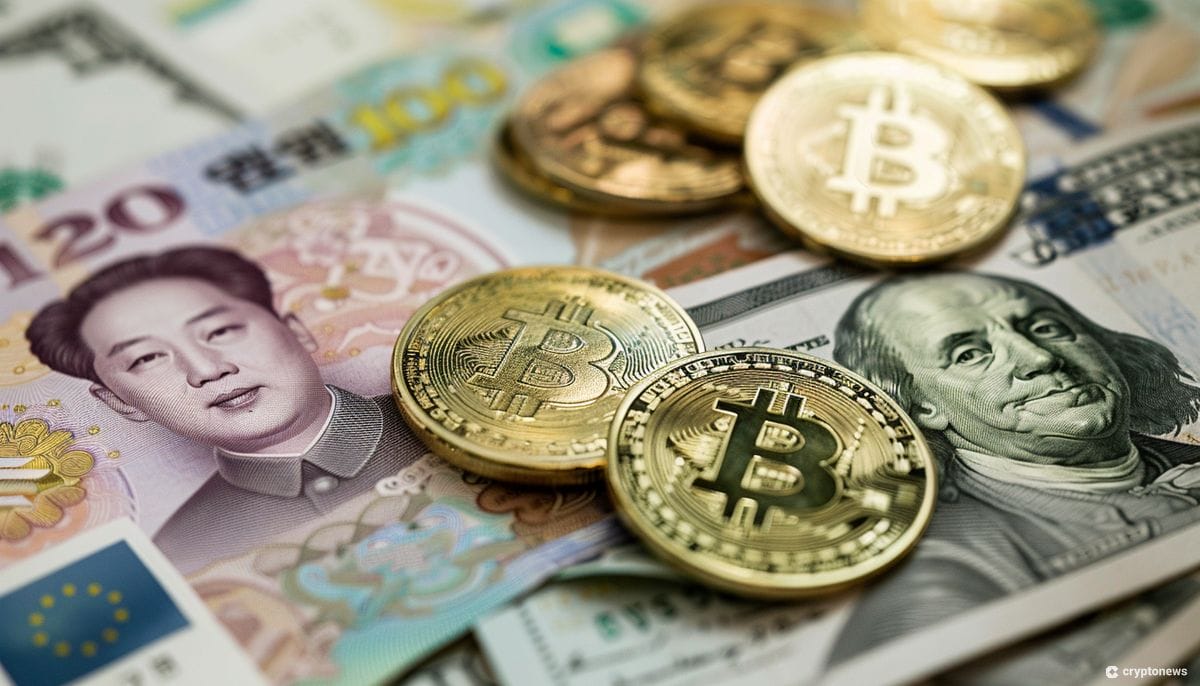The South Korean won has emerged as the leading fiat currency for cryptocurrency trading, overtaking the US dollar in the first quarter of 2024.
According to a recent research report by Kaiko, the South Korean won accounted for more than $456 billion in trading volume on centralized crypto exchanges, surpassing the $455 billion volume in US dollars.
Kaiko attributed the growing dominance of the South Korean won to the “fee war” among Korean crypto exchanges.
The report highlighted that the improving macroeconomic environment and intense competition between exchanges in South Korea have fueled trade volumes, reaching their highest level in over two years in early March.
As a result, the cumulative trade volume of the South Korean won exceeded that of the US dollar in Q1 2024.
Euro-denominated Trading Pairs Recorded $59B in Volume
In comparison, Euro-denominated trading pairs registered only $59 billion in cumulative volume, securing the third position for the first quarter of 2024.
Upbit, as the leading crypto exchange in the region, has maintained a stronghold on over 82% of South Korea’s crypto market share since 2021.
However, the recent bullish market conditions intensified competition among rival exchanges.
Bithumb and Korbit, in particular, launched zero-fee campaigns in late 2023 to attract users.
While Korbit’s market share remained below 1%, Bithumb witnessed a threefold increase in its market share following the introduction of zero-fee trading in October 2023.
Nonetheless, the aggressive zero-fee strategy resulted in a significant revenue drop for Bithumb.
Despite the surge in trade volume, Bithumb’s annual revenue declined by 60% in 2023, leading the exchange to discontinue its zero-fee campaign on February 5, just five months after its launch.
Kaiko also highlighted that the trading volumes for the South Korean won experienced a decline in early April.
However, with the recent approval of spot Bitcoin and Ether exchange-traded funds (ETFs) in Hong Kong, a rebound in volumes might be coming.
Hong Kong’s financial regulator has given the green light to three spot Bitcoin ETFs, which are slated to be listed on the Hong Kong Stock Exchange in approximately two weeks’ time.
South Koreans Turn to Crypto
A recent survey has revealed that most young South Koreans are losing faith in the national pension system, with many stating they see crypto and stocks as a better alternative.
The study found that more than three-quarters of people aged 20-39 “don’t trust” state-issued pensions.
Over half of respondents who said they were making their own pension plans claimed they were building their retirement funds with stocks and crypto.
Interestingly, even election candidates themselves have exposure to cryptocurrencies, with approximately 7% of them owning digital assets, according to a report by Yonhap that analyzed their asset disclosures.
Just recently, it was reported that South Korea is set to introduce stricter regulations for token listing on exchanges, including the blocking of tokens that have been hacked.
The country’s financial authorities are preparing to release guidelines for virtual asset trading support, expected to be published by the end of this month or early next month.
Read the full article here


